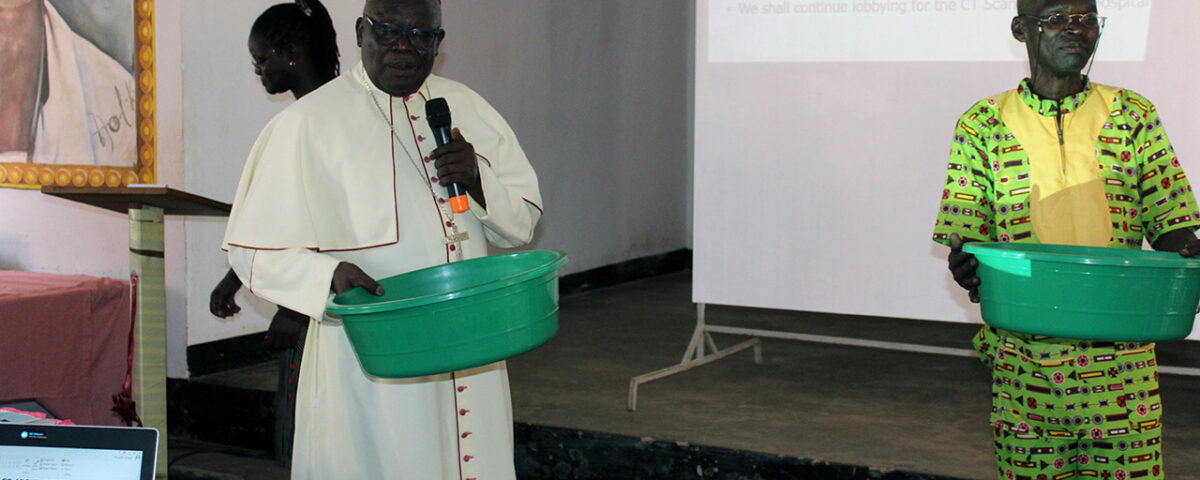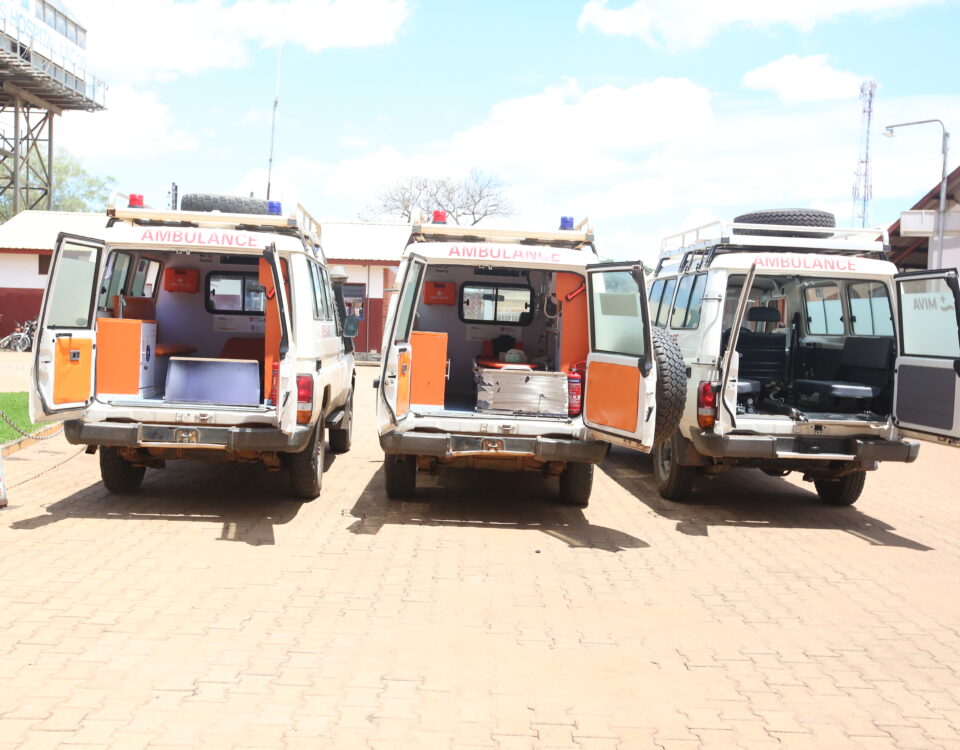In the face of a hard economic time, brought about by Covid-19 and the wars in Ukraine and the Middle East, more and more people are turning to Lacor for their hospital needs as it is the only private facility in the region that is more affordable.
Established in 1959, Lacor Hospital was set up to provide quality care to the greatest number of people at the least possible cost, especially to the most vulnerable people of northern Uganda. And yet even the founders could not have imagined a time when a pandemic or war would bring the world economy to its knees.
As such, the hospital finds itself in unchartered territories, needing to strike a balance between quality and affordability as donor funds dwindle. And this year’s annual stakeholders’ meeting themed “Providing Quality Health Care While Fighting the Raising Disease Burden in a Hard Economic Time” is not a far cry from the inner wishes of the hospital.
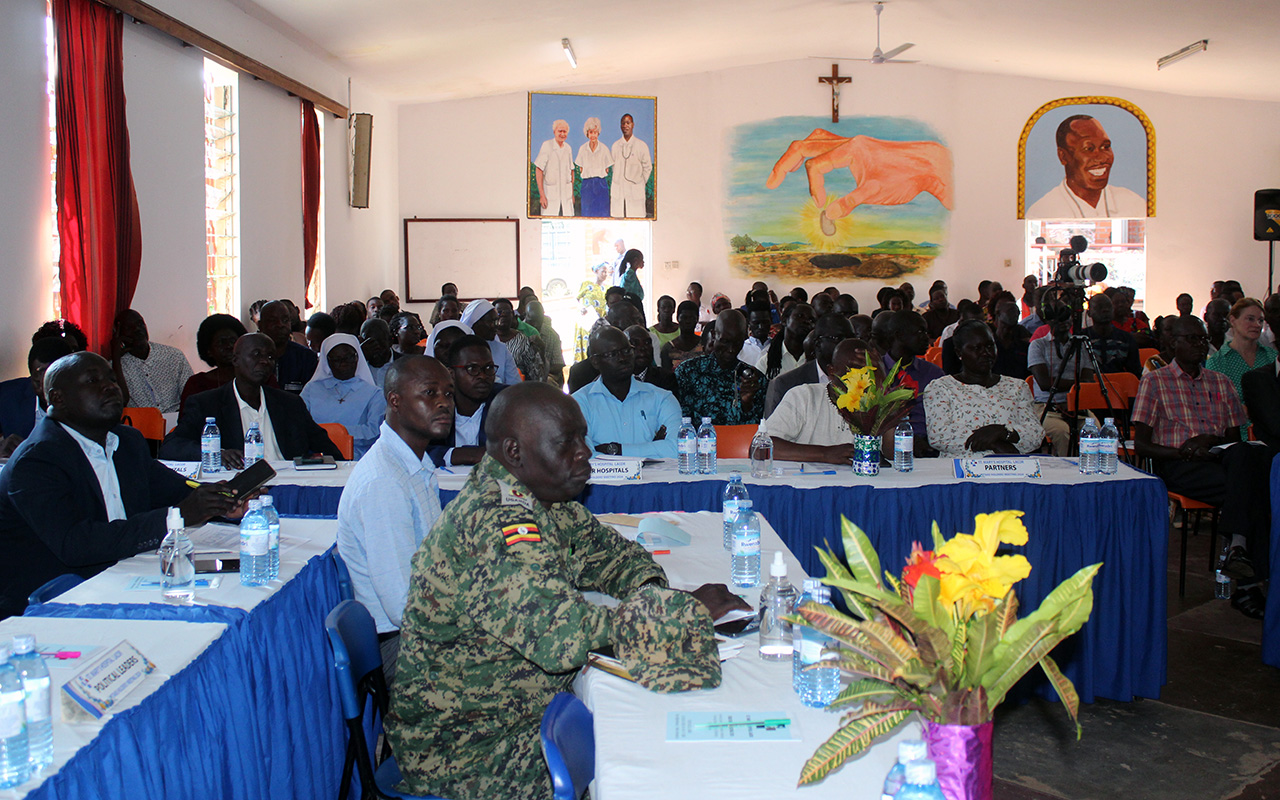 Each of the speakers lined up by the hospital concluded their speech at least by mentioning the increasing financial burden placed on the hospital. Dr. Emmanuel Ochola, the Deputy Institutional Director, for instance, mentioned that the growing burdens of infectious diseases could strain the system and financial resources of the hospital and staff.
Each of the speakers lined up by the hospital concluded their speech at least by mentioning the increasing financial burden placed on the hospital. Dr. Emmanuel Ochola, the Deputy Institutional Director, for instance, mentioned that the growing burdens of infectious diseases could strain the system and financial resources of the hospital and staff.
Dr. Martin Ogwang, the Institutional Director, explained that treating trauma-related cases can be costly. “A nail used to fix a fractured bone typically costs 20 million shillings. However, due to a recent donation, patients at Lacor Hospital now only pay 2 to 3 million shillings, along with a flat admission fee of 75,000 shillings, regardless of their length of stay,” he said.
While this pricing is more affordable compared to other hospitals that charge 10 to 20 million for the same service, questions remain whether the hospital will always have these supplies as donations.
Perhaps Dr. Emintone Odong, the Medical Director was more direct in his approach when he said that the hospital is facing financial challenges due to fluctuating government funding. Currently, Lacor Hospital has only two government-funded medical doctors instead of the usual five, and the grant from the government has dropped to about 5% from what it used to be 25%.
“The high costs of medical supplies and equipment are causing delays in care and worsening health outcomes for patients,” he noted. Dr. Odong also expressed concern about young people abandoning the elderly in the hospital, citing financial constraints. He urged young people to show compassion and care for the elderly.
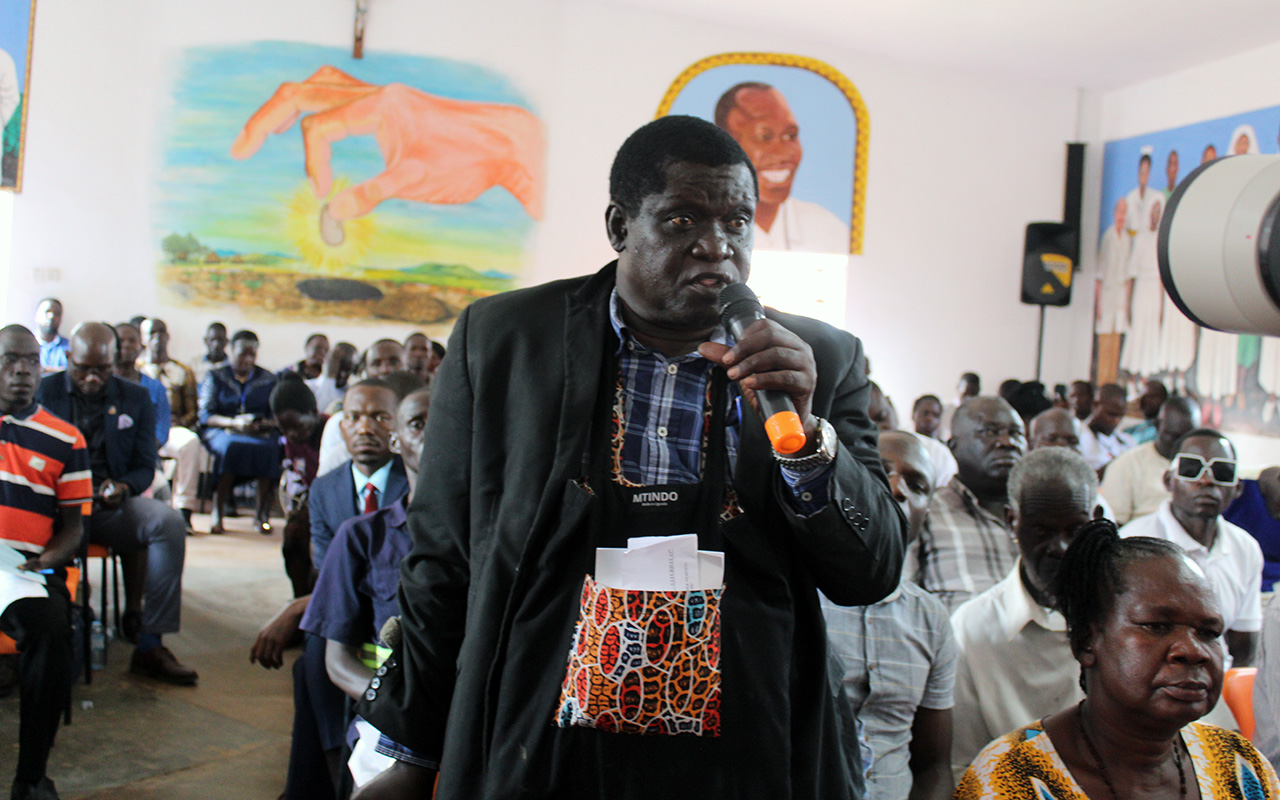 Even though Lacor Hospital is a private facility, it has always lived in the public eye, occasionally drawing criticism and scrutiny. A small increase in consultation fees last year was enough to spark an outcry although it is still much lower than other private not-for-profit referral hospitals.
Even though Lacor Hospital is a private facility, it has always lived in the public eye, occasionally drawing criticism and scrutiny. A small increase in consultation fees last year was enough to spark an outcry although it is still much lower than other private not-for-profit referral hospitals.
During the question-and-answer session, an attendee sought clarity on hearsay of a potential acquisition of the hospital by a South Sudanese national. That was not the first time this had come up. This rumour has been doing rounds on social media, perpetuated by youthful influencers and this particular query was enough to bring the assembly to life in a lively discussion.
At this point, it was prudent for Archbishop Emeritus John Baptist Odama who is also the board chair to speak up. “Lacor cannot be bought or sold because it is essential for the people of not only northern Uganda but also a gift from God passed down to us by those who came before us, as indicated by the pictures of Corti and Lucille,” he said to the eager crowd.
His reassurance that the hospital is under the jurisdiction of the Archdiocese of Gulu and is governed by the Board of Trustees was enough to quieten the room and set the stage for a mini-fundraiser as he called upon the people to not only rely on donations from abroad but become local donors themselves to support the needs of the hospital.
They collected a total of 834,300 shillings to the delight of the Archbishop Emeritus, a gesture which shows that even small donations can make a difference in a patient’s life. He also spoke out against the attacks on medical workers and demanded that it end promptly. He warned that “even though I may have retired, my voice remains as strong as ever.”
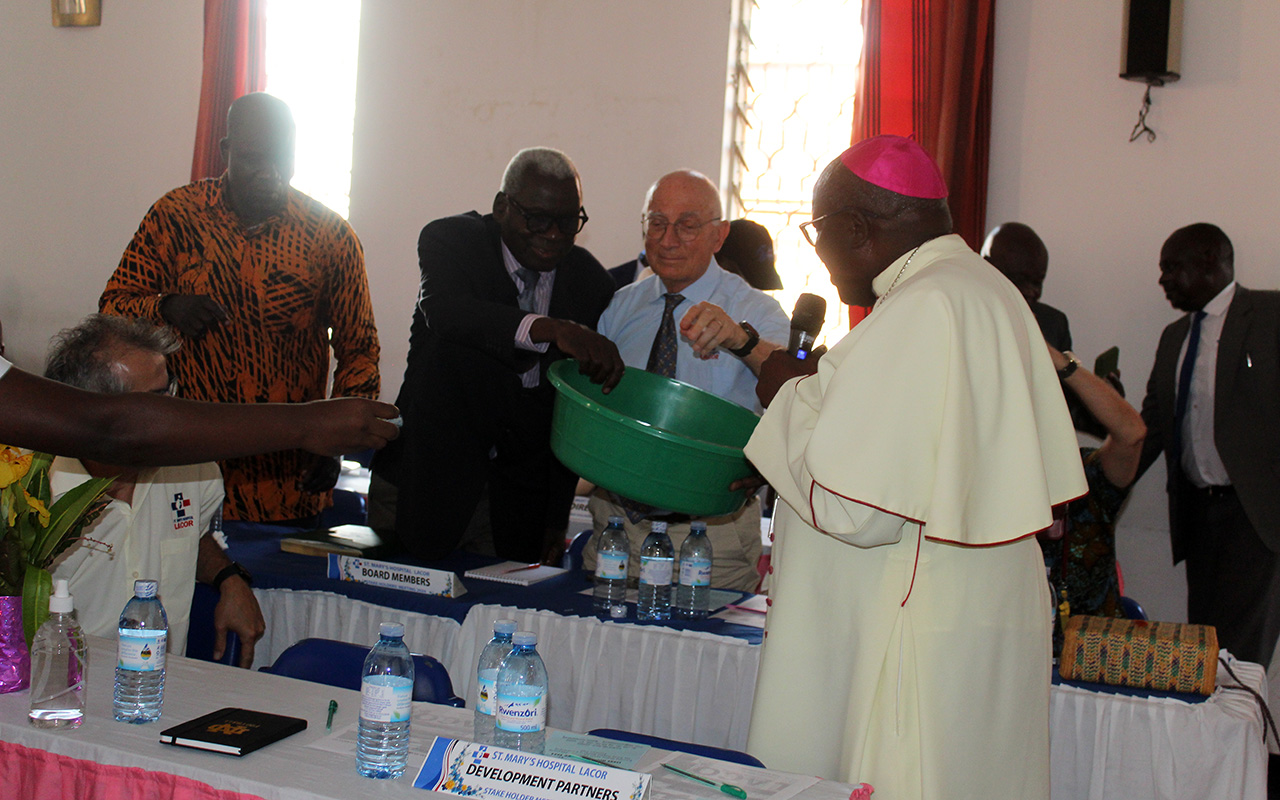 The stakeholders discussed ways the hospital can make money and maintain quality at the least possible cost. Some suggested that the hospital should consider investing in shares, building hostels, and exploring untapped income-generating activities while others thought that the Archbishop should be the fundraising face of the hospital as people tend to respond positively to his appeals.
The stakeholders discussed ways the hospital can make money and maintain quality at the least possible cost. Some suggested that the hospital should consider investing in shares, building hostels, and exploring untapped income-generating activities while others thought that the Archbishop should be the fundraising face of the hospital as people tend to respond positively to his appeals.
With a budget shortfall of 160 million in the just concluded financial year and even a bigger margin from the previous one, Lacor can only do as much without jeopardising its non-profit status and yet it must continue to operate more efficiently despite being a non-profit organization if it is to remain true to its mission.

